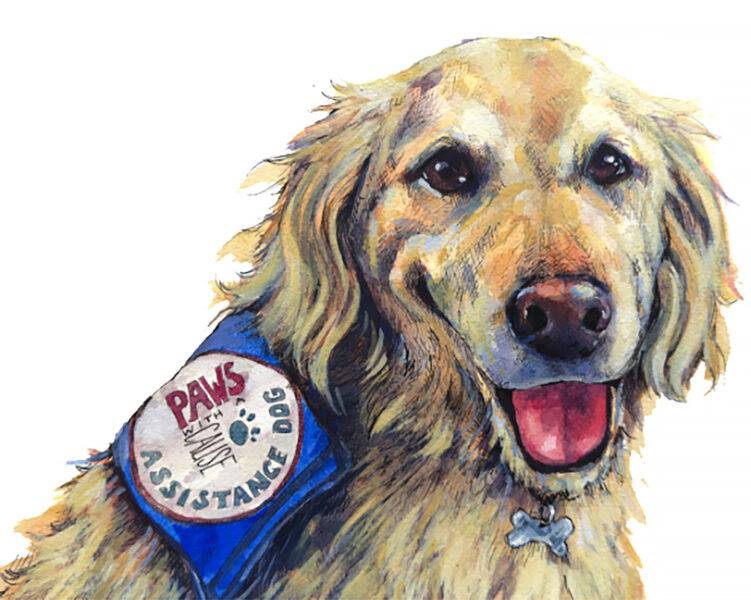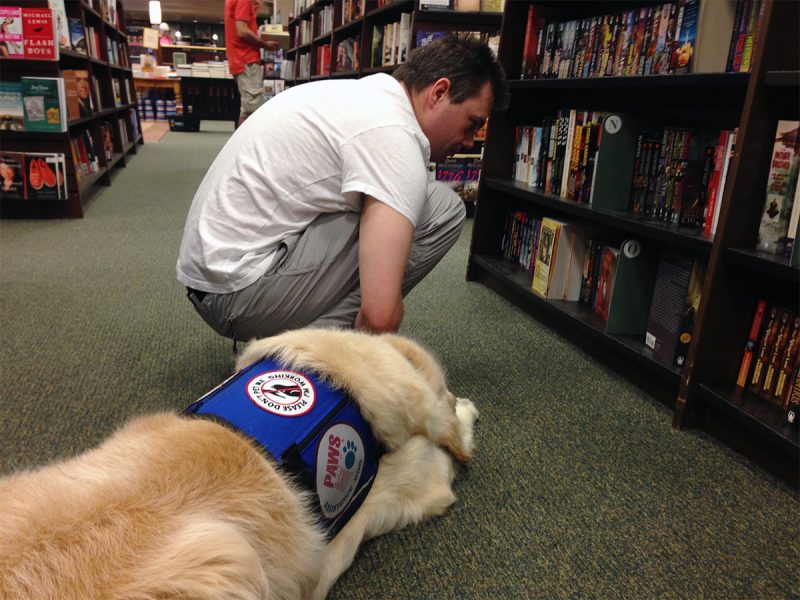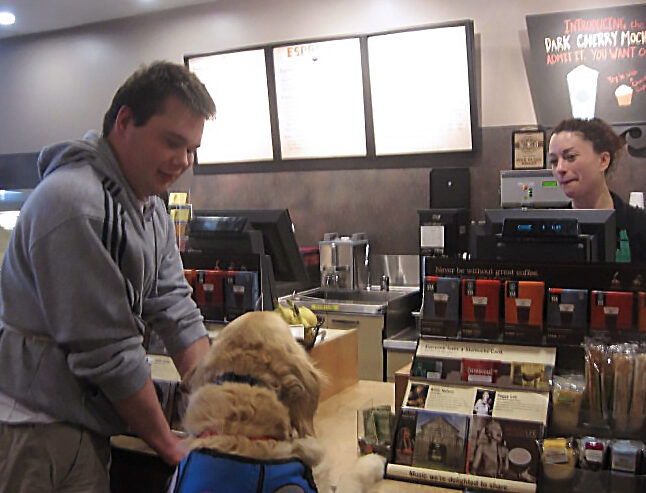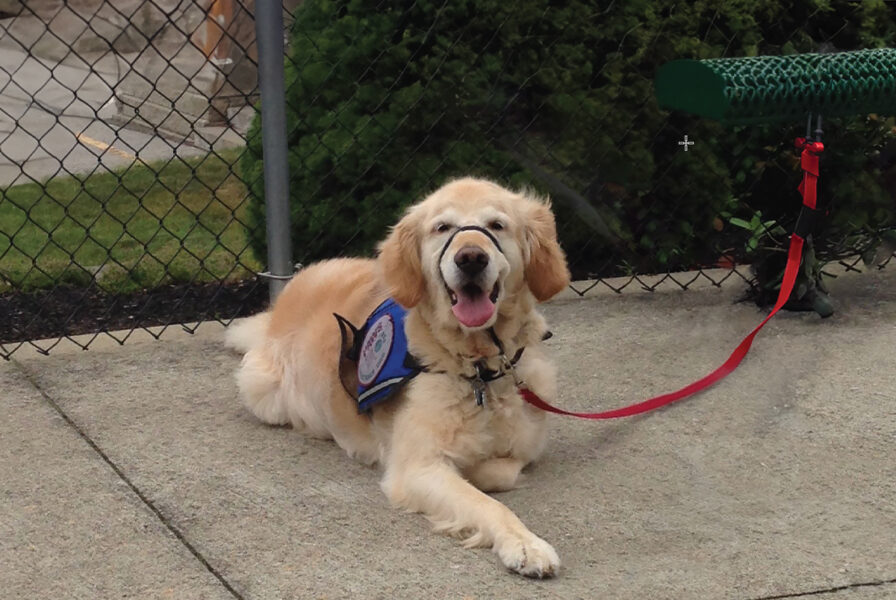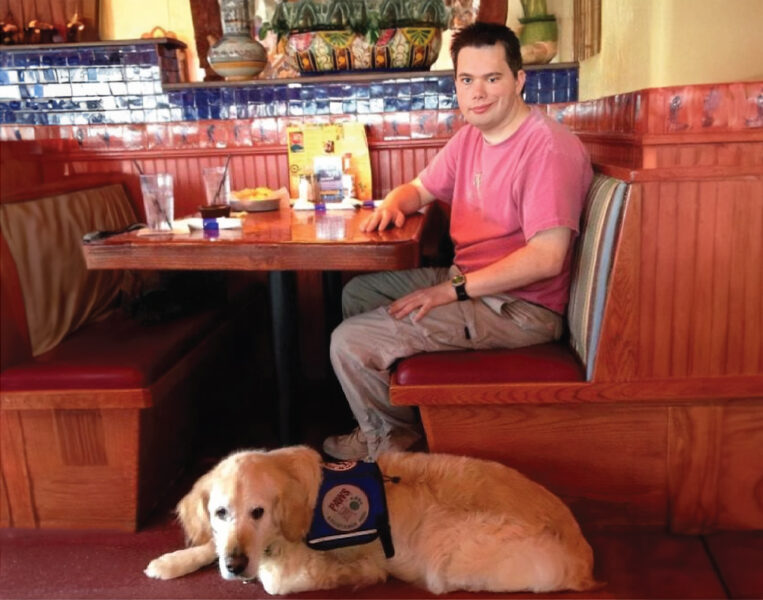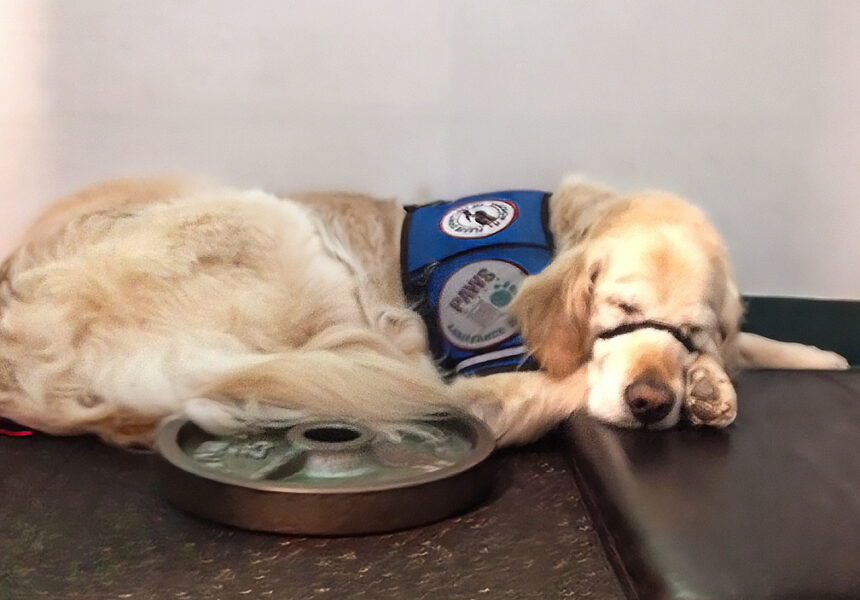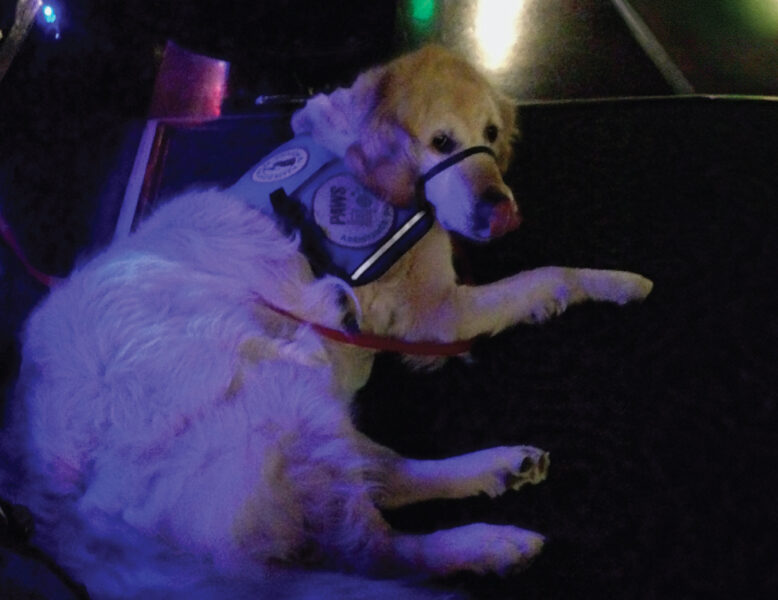Information for service dog owners, businesses, landlords, and the general public
Service Dog Etiquette
- You should never distract a service dog in any way.
- You shouldn’t call attention by pointing to a service dog or making a comment about them, whether it is positive or negative.
- If you absolutely feel the need to pet the dog, please ask the handler (the service dog owner) first.
- Talk to the handler and not just the dog. You may inquire about what the dog is trained to do, but not the handler’s disability.
- Please don’t talk to the dog in baby language. Remember to be respectful.
Public Access
- Under the Fair Housing Act (FHA), a service animal must be permitted in all areas where members of the public are allowed.
- Under the Americans with Disabilities Act (ADA), state and local governments, businesses, and nonprofit organizations that service the public generally must allow service animals to accompany people with disabilities in all areas of the facility where the public is allowed to go.
- The Air Carrier Access Act (ACAA 49 U.S.C. 41705) prohibits discrimination in airline service based on disability. When traveling, there are some documents you may need to fill out, like the Service Dog Air Transportation Form and a Relief Attestation Form.
What can my business do?
Sometimes, you may not be sure if a dog entering your business is a service dog or not. In situations where it is not obvious that the dog is a service animal, staff may ask only two specific questions:
- Is the dog a service animal required because of a disability?
- What work or task has the dog been trained to perform?
Staff are not allowed to request any documentation for the dog, require that the dog demonstrate its task, or inquire about the nature of the person’s disability.
However, the ADA does not prohibit non-employees from asking questions. So if one customer was to inquire about another customer’s dog and an employee happened to hear it, that would be completely acceptable.
After asking these questions, the NH Attorney General’s Office says, “If a business has concerns that a customer is representing that a dog is a service animal when it is not, that business should start with their local police department.”
If you are concerned about people misrepresenting pets as service dogs at your business, the Governor’s Commission on Disability has created a notice that can be displayed on the front door or window of your location. It states “Service Animals Welcome” and that it is illegal to misrepresent a pet as a service animal. To request the free decal and information card, call the Secretary of State’s Corporation Information Line at (603) 271-3246, email [email protected], or download and print the 7x8 decal.
What can my staff do when a service animal is being disruptive?
In the unlikely circumstance that a service animal is out of control and the handler does not take effective action to control it, staff may request that the animal be removed from the premises. Staff cannot ask the handler to leave.
What does it mean for a service dog to be under control?
The ADA requires that service animals be under the control of the handler at all times.
Under control means that a service animal should be harnessed, leashed, or tethered while in public places unless these devices interfere with the service animal's work or the person's disability prevents use of these devices. In that case, the person must use voice, signal, or other effective means to maintain control of the animal.
Most trained dogs are taught to walk by their owners side on a leash! Some exceptions include:
- A person who uses a wheelchair may use a long, retractable leash to allow her service animal to pick up or retrieve items. She may not allow the dog to wander away from her and must maintain control of the dog, even if it is retrieving an item at a distance from her.
- A returning veteran who has PTSD who has great difficulty entering unfamiliar spaces may have a dog that is trained to enter a space, check to see that there are no threats, then come back and signal that it is safe to enter. The dog must be off its leash to do this job, but may be leashed at other times.
- A dog trained to sense low blood sugar and carried in a sling close to the person’s mouth so that they can scent their breath easily.
Service dogs are not allowed to bark repeatedly in a lecture hall, theater, library, or other quiet place. However, if a dog barks just once, or barks because someone has provoked it (which some people like to do, believe it or not), this would not mean that the dog is out of control.
Don't confuse communication with misbehaving! If you ever have a service dog come up to you and paw or touch you, they are not looking for a treat or attention, they are trying to get help for their handler! Some dogs are trained to get help if their owner has a seizure or other medical emergency.
Stores & Restaurants
Most fully trained service dogs are trained lay quietly by their handler. For example, in a restaurant, the dog can lay under the table or, if there’s no room under the table, to lay quietly by the side of the table but not in the way of the waitstaff. It would be helpful if the host or hostess consider this and direct patrons with service dogs to the best location.
When at a retail store, service dogs are trained to stay, sit, or lay right next to their handler who is shopping, not be wandering around.
At the Gym
Service dogs are also allowed into the exercise gym with their handler. This is another very good reason people should not be slamming down weights!
It would be very helpful for a trainer or other employee to point out a good location for the dog. Remember, the handler needs to be in physical control or in hearing range of the dog. For example, if they are using a pool to work out, the dog needs to be laying by the side of the pool, but not too close as to be splashed or laying in a puddle of chlorinated water, which can cause a rash!
When their handler is busy at recreational activities, a service dog should still be close at hand, but if they need to be out of the way for safety reasons (like a swinging golf club), they should be tethered a safe distance away. For example, a service dog could be tethered to a nearby telephone pole, fence, or bench while the handler has fun at a golfing range or batting cage.
Don’t forget, always try to have a cold bowl of water available to the service dog. It would be helpful for an employee to help with this!
Always at Work
While at a movie or play with their handler, a service dog may take a little break from working, but don’t be fooled. They’re still keeping one eye open and their ears alert in case they are needed!
Questions?
Please feel free to contact us with any questions. SDNH Chair, Brendan Madden, is a former service dog owner and is happy to answer the questions and concerns of other service dog owners. Brendan is also available to speak with businesses on how they can best serve employees and customers with service dogs.

Disclaimer: Any information provided on servicedogsnh.org and our associated social media accounts is non-binding and for informational purposes only. Nothing herein should be construed or interpreted as a legal opinion, counsel, or advice.

